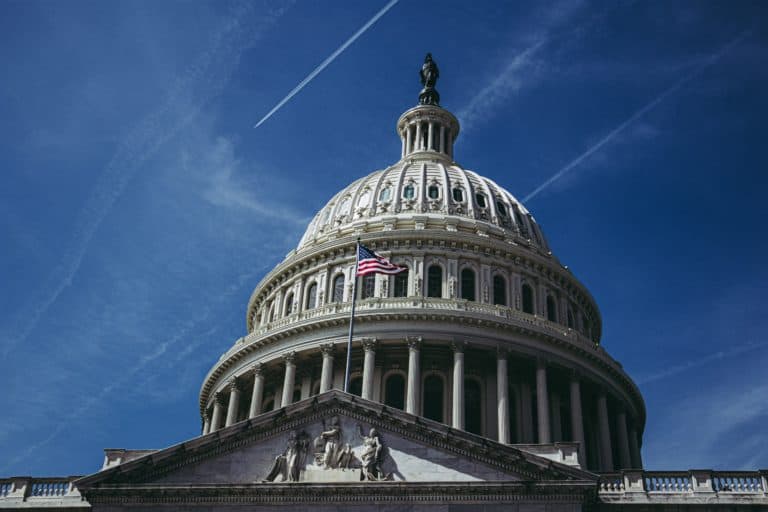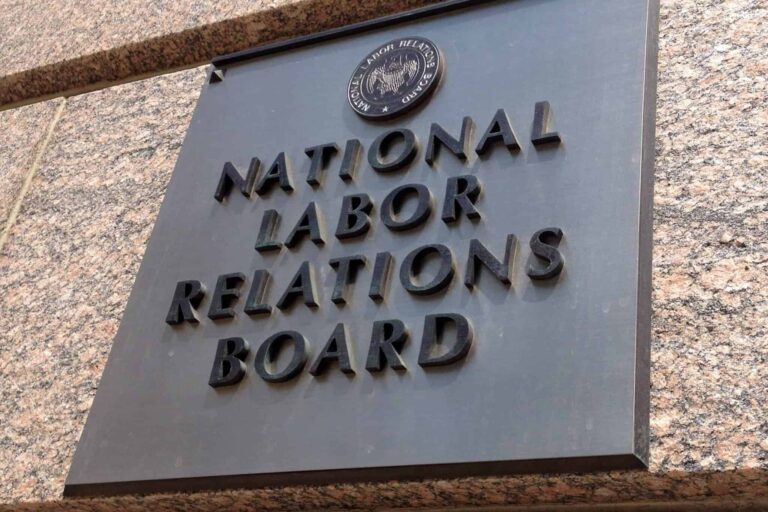
Andrew Strom is a union lawyer based in New York City. He is also an adjunct professor at Brooklyn Law School.
As the Supreme Court is about to decide whether to overrule the long-settled doctrine known as Chevron deference that requires courts to defer to administrative agencies when those agencies fill in the gaps in the statutes they enforce, the recent Third Circuit ruling in PG Publishing v. NLRB is a timely reminder of what’s at stake in this debate.
PG Publishing involved the application of a longstanding labor law rule – when a collective bargaining agreement (CBA) expires, an employer may not change the terms in that expired agreement until the parties either reach a new agreement or get to an impasse in bargaining. There are some exceptions to this rule. For instance, arbitration clauses don’t survive expiration. But, in general, contract provisions that address mandatory subjects of bargaining form the post-expiration status quo. In practice this means that if the CBA gives workers ten sick days per year, then the employer must continue to provide those ten sick days post-expiration.
PG Publishing publishes a newspaper called the Pittsburgh Post-Gazette. This case arises out of a dispute between the newspaper and the Graphic Communications International Union, which represents the pressmen and paperhandlers. The CBA included the following provision:
Effective the first payroll week following the signing of the collective bargaining agreement, all employees listed by name at the time of the signing of this Agreement shall be guaranteed a five (5) shift mark-up each payroll week for the balance of the Agreement, ending March 31, 2017, except under the following circumstances….
At some point after the expiration of the CBA, the Employer laid off two of the workers covered by this five-shift guarantee, and none of the contractual exceptions applied. The Employer argued that the five-shift guarantee did not form part of post-expiration status quo because the provision stated that the guarantee ended on March 31, 2017 – the day the CBA expired. The case was submitted on stipulated facts, so there was no testimony about bargaining history.
A divided NLRB found that the five shift guarantee was part of the post-expiration status quo, and thus, PG Publishing violated the duty to bargain by laying off the two workers without first bargaining to impasse. The Board’s ruling rested on the notion, endorsed by the Supreme Court, that employers may not make unilateral changes during bargaining “in order to protect the statutory right to bargain.” Since the maintenance of the status quo post-expiration is a statutory right, the NLRB held that a waiver of that right must be “clear and unmistakable.” The Board majority explained that while the provision stated that the guarantee was in effect for the balance of the CBA, the agreement was silent as to what would happen upon the CBA’s expiration. The Board majority noted that there is a difference between post-expiration contractual obligations and post-expiration statutory obligations. Contracts always have duration provisions, and it’s not unusual to provide that a particular provision applies during the term of the agreement. For instance, here, the CBA included a “no-strike, no lockout” provision, which stated that it applied “during the term of this Agreement.” That language was superfluous because the default rule is that a “no-strike, no lockout” provision does not survive expiration of any agreement. The Board has held that durational language standing alone does not constitute a waiver of the statutory obligation to maintain the status quo post-expiration. Moreover, in prior cases the NLRB had offered a road map to bargainers, holding that a term would not be deemed part of the post-expiration status quo where the CBA states that the particular obligation would “terminate” at the expiration of the CBA.
The two Republican Board Members dissented. The dissenters refused to apply the “clear and unmistakable” waiver standard. Instead, the dissenters applied ordinary contract interpretation principles to determine the parties’ intent. To the dissenters, the inclusion of the words “ending March 31, 2017” in the five-shift guarantee provision meant that the guarantee did not continue post-expiration. The majority thought this could either be a superfluous reference to when the CBA expired, or that perhaps having specified when the guarantee took effect, the parties wanted to clarify that the guarantee remained in effect for the duration of the CBA.
The Third Circuit panel followed the approach taken by the NLRB dissenters, ruling that ordinary contract law principles determine whether a provision remains part of the post-expiration status quo. The judges acted as though this was just a case about contract interpretation – an issue where the courts give the NLRB no deference. In fact, this was a case about policy choices. The court began its analysis by misrepresenting dicta in the Supreme Court’s decision in Litton Financial Printing Div. v. NLRB. The question in Litton was whether, under the particular CBA at issue in that case, the duty to arbitrate grievances survived expiration of the CBA. In the course of resolving that question, the Court made two observations that the Third Circuit cited to support its ruling even though neither observation speaks to the issue in PG Publishing. In Litton, the Court noted that “after expiration [of a CBA] most terms and conditions of employment are not subject to unilateral change, in order to protect the statutory right to bargain.” The Third Circuit latched on to the Court’s use of “most” rather than “all,” but this was just a reference to the fact that for policy reasons some provisions, such as ones providing for arbitration or prohibiting strikes, do not apply post-expiration. In Litton, the Court also noted that while an employer may not make unilateral changes post-expiration, “those terms no longer have force by virtue of the contract,” pointing to a Second Circuit case, Derrico v. Sheehan Emergency Hospital, where the court dismissed a suit alleging that the post-expiration status quo created an implied contract. The Derrico court explained, “[t]he terms of an expired agreement thus retain legal significance because they define the status quo. Rights and duties under a collective bargaining agreement do not otherwise survive the contract’s termination at an agreed expiration date.” In PG Publishing, the Third Circuit described that language from Derrico as having “particular importance,” but that can only be based on a misreading of Derrico. The Derrico court was simply making the point that while an expired CBA defines the status quo for purposes of applying the ban on unilateral changes, it doesn’t create any other rights or impose any other obligations on the parties. But, in PG Publishing, the only issue was defining the status quo. And neither Litton nor Derrico speaks to that question.
The Supreme Court long ago explained that “an employer’s unilateral change in conditions of employment under negotiation … is a circumvention of the duty to negotiate which frustrates the objectives of [the NLRA] as much as does a flat refusal.” The NLRB, acting with an understanding of how unilateral changes pose a threat to collective bargaining, has decided that a union must “clearly and unmistakably” agree that a particular contract provision will not form part of the post-expiration status quo. Under the Third Circuit’s standard, a union may find that it unintentionally excluded a particular contract term from that status quo.










Daily News & Commentary
Start your day with our roundup of the latest labor developments. See all
July 15
The Department of Labor announces new guidance around Occupational Safety and Health Administration penalty and debt collection procedures; a Cornell University graduate student challenges graduate student employee-status under the National Labor Relations Act; the Supreme Court clears the way for the Trump administration to move forward with a significant staff reduction at the Department of Education.
July 14
More circuits weigh in on two-step certification; Uber challengers Seattle deactivation ordinance.
July 13
APWU and USPS ratify a new contract, ICE barred from racial profiling in Los Angeles, and the fight continues over the dismantling of NIOSH
July 11
Regional director orders election without Board quorum; 9th Circuit pauses injunction on Executive Order; Driverless car legislation in Massachusetts
July 10
Wisconsin Supreme Court holds UW Health nurses are not covered by Wisconsin’s Labor Peace Act; a district judge denies the request to stay an injunction pending appeal; the NFLPA appeals an arbitration decision.
July 9
the Supreme Court allows Trump to proceed with mass firings; Secretary of Agriculture suggests Medicaid recipients replace deported migrant farmworkers; DHS ends TPS for Nicaragua and Honduras